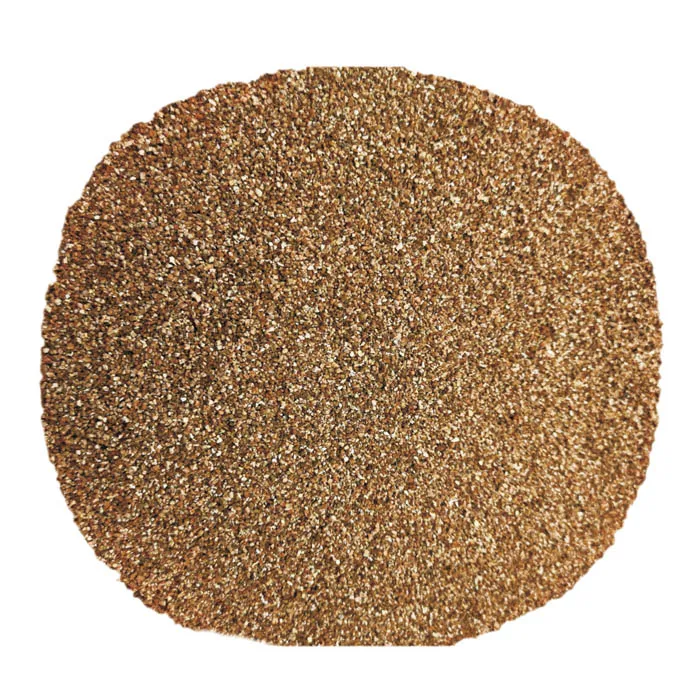ሐምሌ . 16, 2025 17:27 ወደ ዝርዝር ተመለስ
Optimize Plant Growth with a Smart Vermiculite and Perlite Strategy
Gardening success often begins with the quality of your soil. Whether you’re growing leafy greens in containers or cultivating large raised beds, your soil medium must deliver oxygen, drainage, and moisture retention in balance. That’s where soil enhancers like perlite and vermiculite come into play. These materials, when selected and applied correctly, can elevate the health of your vegetables and increase yield. From backyard gardens to greenhouse operations, the proper soil mix is often the key to unlocking vibrant, consistent growth.

Knowing When to Use Perlite or Vermiculite for Vegetables Makes a Big Difference
Home gardeners and professionals alike often debate the use of perlite or vermiculite for vegetables in various growing conditions. While both materials enhance soil structure, each brings a unique benefit. Perlite promotes airflow and prevents root rot, while vermiculite retains moisture and nutrients close to the roots. The combination or selection depends largely on the plant type and climate. Tomatoes and peppers, for example, thrive in soil enhanced by perlite due to their preference for drier root environments, while leafy greens benefit more from the water-retaining nature of vermiculite.
Understanding What Influences the Decision to Vermiculite Buy for Home or Commercial Use
For those seeking to vermiculite buy online or from local suppliers, understanding quality grades and packaging is essential. Vermiculite comes in several grades—fine, medium, and coarse—each suited for different applications. Coarse-grade is ideal for hydroponic systems and potting mixes, while finer grades serve well for seed starting. Before making a purchase, gardeners should consider the desired soil texture and water retention goals. Buying in bulk often reduces cost per liter, especially for larger gardening projects or commercial growing operations.
How a Perlite Vermiculite Mix Can Unlock Balanced Soil Structure
A well-formulated perlite vermiculite mix offers the best of both worlds—excellent drainage and superior moisture retention. When combined in equal parts, this blend supports a wide range of plant types, from succulents to seedlings. The perlite improves soil aeration and keeps it from compacting, while the vermiculite acts like a sponge, absorbing water and slowly releasing it as needed. This synergy is ideal for plants sensitive to irregular watering, ensuring a steady root environment that encourages healthy development and resilience against stressors.
Finding Garden Solutions Through Sta-Green Vermiculite Applications
One trusted option for soil conditioning is sta-green vermiculite, known for its consistency and performance. This form of expanded mica undergoes a thermal process that increases its absorbency and makes it lightweight, making it easy to mix into potting soils or seed-starting trays. Gardeners have noted that it enhances root anchorage and improves nutrient uptake. Its neutral pH and natural mineral makeup make it safe for vegetables, herbs, and even ornamental plants. When properly applied, this type of vermiculite can transform ordinary soil into a nutrient-efficient growing medium.
Making the Right Choice When Comparing Uline Vermiculite for Packaging and Growing
Although many recognize uline vermiculite for its use in industrial packaging, it also has horticultural applications that are often overlooked. In the gardening context, Uline’s coarse vermiculite provides reliable moisture retention and thermal insulation. While not always marketed specifically for gardening, its properties align with standard horticultural-grade vermiculite. Gardeners considering Uline vermiculite should ensure the product is free from contaminants and suited for organic or edible plant use. This step helps avoid introducing unwanted substances into the garden and ensures compatibility with vegetables and herbs.
Why Should Gardeners Use Vermiculite Instead of Just Peat or Compost?
While peat and compost provide organic matter and some nutrients, they don't retain moisture or promote aeration as effectively as vermiculite. Incorporating vermiculite into the soil provides a stable environment for roots, especially important in fluctuating temperatures or arid climates.
What Proportions Work Best for a Perlite Vermiculite Mix in Vegetable Gardens?
For general vegetable gardening, a 1:1 ratio of perlite to vermiculite is effective. However, adjusting to a 2:1 mix with more perlite may suit drier climates or drought-tolerant plants, while a 2:1 mix favoring vermiculite may help seedlings or moisture-loving crops.
Is Vermiculite Safe and Sustainable for Long-Term Gardening?
Vermiculite is a naturally occurring mineral and is considered safe and non-toxic when sourced responsibly. Most horticultural vermiculite today is asbestos-free and safe for prolonged use in vegetable gardens, indoor planters, and hydroponic systems.
Vermiculite and Perlite FAQs
Q: Can I use sta-green vermiculite alone for growing plants?
A: It’s best used as part of a mix. On its own, sta-green vermiculite may retain too much moisture, which can lead to root rot in some plants. Combine it with perlite or peat moss for optimal results.
Q: Is perlite or vermiculite better for seed starting?
A: Vermiculite is often preferred for seed starting due to its superior water retention and soft texture, which provides a gentle environment for sprouting roots.
Q: How does uline vermiculite compare with horticultural brands?
A: Uline vermiculite can be similar in function, but users should verify that the product is free of industrial contaminants and suitable for gardening, especially when used around edible crops.
Q: What is the shelf life of vermiculite once opened?
A: Vermiculite does not degrade over time, but it should be stored in a dry place. Moisture can lead to clumping or fungal growth, so proper storage ensures lasting performance.
Q: Can I mix vermiculite with organic fertilizers?
A: Yes, vermiculite works well with organic fertilizers. Its moisture retention helps distribute nutrients evenly throughout the root zone, improving plant health and nutrient absorption.
-
Revolutionizing Metallurgy with High-Performance Fe-C Composite and Carbon Additives
ዜናJul.16,2025
-
Revolutionize Steelmaking with High-Efficiency Metallurgical Materials
ዜናJul.16,2025
-
Optimize Plant Growth with a Smart Vermiculite and Perlite Strategy
ዜናJul.16,2025
-
Optimize Garden and Pool Projects with High-Quality Vermiculite Solutions
ዜናJul.16,2025
-
Minerals Matter: Unlocking the Industrial Power of Bauxite and Galena
ዜናJul.16,2025
-
Discover Valuable Resources with Sustainable Bauxite Mining Practices
ዜናJul.16,2025
